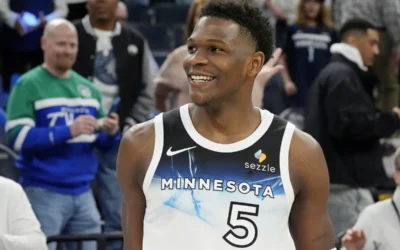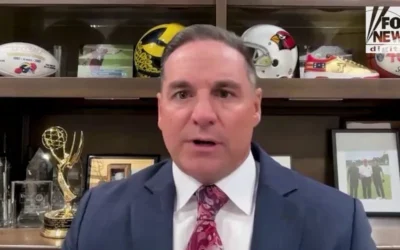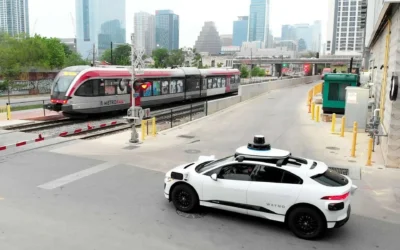Who Will Be the Next Pope? Potential Candidates and a Chance for an American Pontiff
The Catholic Church, the largest Christian denomination in the world, is facing a critical juncture as anticipated discussions about who will succeed Pope Francis intensify. With the Pope’s advanced age and recent health challenges, speculation around his potential retirement or passing has ignited conversations about the next leader of the Church. Who might step into these monumental shoes? Could the next Pope come from the United States? Let’s explore the possible candidates and gain insights from experts on the future of the papacy.
Pope Francis: A Brief Overview
Pope Francis, born Jorge Mario Bergoglio in Argentina, was elected as the 266th Pope in March 2013. Since then, he has been a transformative leader, known for his progressive views on a range of issues, including climate change, immigration, and social justice. His papacy has seen a focus on fractures within the Church as well, tackling issues of clerical abuse and promoting a more inclusive church environment. However, as Pope Francis ages—he is currently 86 years old—questions loom about his future, lending urgency to discussions about his successor.
Possible Candidates for the Papacy
As the conversation about a potential successor heats up, several names have repeatedly surfaced among speculators and analysts. Here are some of the most likely candidates:
1. Cardinal Pietro Parolin
As the Secretary of State of the Vatican, Cardinal Pietro Parolin, 68, serves as the Pope’s closest aide and has played a significant role in the Vatican’s foreign relations. His extensive experience in diplomacy and governance makes him a serious contender. Many perceive Parolin as a moderate, maintaining the balance between progressive and conservative factions in the Church.
2. Cardinal Luis Antonio Tagle
Cardinal Tagle, 65, the Archbishop of Manila, is beloved for his charismatic demeanor and is seen as a papal candidate who could bridge the gap between the global South and the Church’s traditional strongholds in the North. He has been vocal about issues concerning poverty and environmental justice, mirroring Pope Francis’s priorities.
3. Cardinal Robert W. McElroy
Cardinal McElroy, 69, the Archbishop of San Diego, has gained attention for his progressive stance on issues like LGBTQ+ inclusion and immigration. His elevation to cardinal in 2015 marked him as a rising figure within the American clergy and could put him in contention should the Church choose to break with tradition by selecting an American Pope.
4. Cardinal Wilton Gregory
Cardinal Gregory, 75, the Archbishop of Washington, D.C., made headlines as the first African American cardinal in U.S. history. His emphasis on racial justice and unity within the Church resonates with contemporary contemporary issues facing Catholics today, making him a potential candidate for leadership in a divided Church.
5. Cardinal Jose Francisco Robles Ortega
Cardinal Robles Ortega, 76, from Mexico, represents the fast-growing Catholic Church in Latin America. His leadership would reflect the demographic shift within the Church, emphasizing the importance of the Global South and addressing concerns relevant to its constituents.
Can an American Pope Be a Reality?
The potential for an American Pope is both a topic of intrigue and controversy. The history of the papacy has been predominantly European, but with the changing demographics of Catholicism, particularly the growth in the Global South, American cardinals may find themselves increasingly in the mix. Experts suggest that an American pontiff would not only modernize the image of the papacy but could also help to galvanize American Catholics who feel disillusioned by recent controversies.
Expert Opinions
Several theologians and Church historians weigh in on the likelihood of an American Pope. Fr. Thomas Reese, a senior analyst at the National Catholic Reporter, notes that while the Church has traditionally looked to Europe for leadership, the trend is shifting. “Given the significant number of Catholics in America, an American Pope may not be as far-fetched as people think,” he says.
However, the conservative elements within the Church, particularly in regions like Africa and Eastern Europe, may favor candidates with more traditional views, making the election of a progressive American cardinal less certain. Dr. John Allen, a Vatican correspondent, reiterates this viewpoint, suggesting that while the Church is becoming more inclusive, many cardinals will still prioritize doctrinal consistency over geographical representation.
Challenges Ahead for the Next Pope
The next Pope will inherit significant challenges requiring both diplomacy and strategic innovation. Key issues include:
- Handling the Clerical Abuse Crisis: The Church continues to grapple with the fallout from abuse scandals. Transparency and accountability will be paramount in rebuilding trust among parishioners.
- Climate Change: Pope Francis has fervently advocated for action on climate change, a stance likely to remain vital as the world faces unprecedented environmental challenges.
- Social Justice and Equality: Addressing issues like poverty, race relations, and the need for a more inclusive Church will be crucial for any future leader.
- Maintaining Unity: Managing the competing ideologies within the Church—progressive vs. conservative—will be essential for steering the Church forward while keeping the various factions engaged.
Conclusion: A Turning Point for the Catholic Church
As speculation around the next Pope ramps up, the Catholic Church finds itself at a critical juncture. The upcoming conclave, when the cardinals will convene to elect a new pontiff, not only has the potential to choose the next leader but could also redefine the Church’s future identity. Whether the next pope will be an American, a moderate diplomat, or a champion of progressive causes remains uncertain. What is clear, however, is that the next papal selection will be watched closely by millions of Catholics and non-Catholics alike as the Church seeks to navigate the complexities of modern societal challenges.
Whatever the case, the next Pope will undoubtedly usher in a new era for the Vatican and global Catholicism, requiring a leader who navigates a path of inclusivity, justice, and faith amidst a rapidly evolving world.






